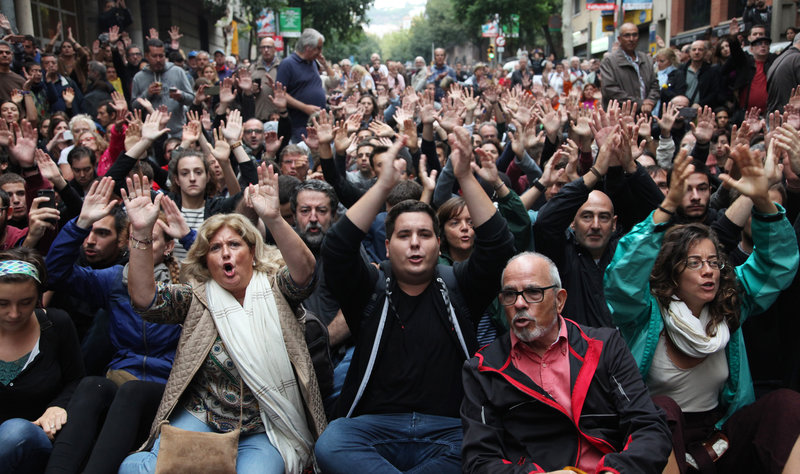The day we were invincible
For psychologists, sociologists and philosophers, October 1 was key to consolidating ties and strengthening national consciousness; peaceful resistance and solidarity has empowered people
For psychologists, sociologists and philosophers, October 1 was key to consolidating ties and strengthening national consciousness· The fight for the greater good by means of peaceful resistance and solidarity has empowered the people. The psychological disconnection with the state is irreversible
We had already lived through days of tension and there were, and possibly still are, many more to come, but the emotional roller coaster experienced by two million Catalans on October 1 last year, is simply incomparable. With so many feelings and emotions, even contradictory, when the electoral colleges finally closed they converged into a collective euphoria that the psychologists, sociologists and philosophers emphasised has strengthened convictions, ties, and the desire to continue the struggle.
We were invincible because despite everything, we voted and as we responded to the aggression not only in a peaceful but also festive way, the sociologist Salvador Cardús recalls, this has “consolidated and completed a feeling of belonging” not only from a political point of view but also “ethical”, since “we feel part of a movement that every time is challenged, bounces back.”
“The reaction of the masses in the street two days later was overwhelming, possibly thanks to the collective empowerment of October 1,” reflects psychotherapist Albert Vidal. “Although some attempted to create a narrative of defeat, that day we all were clear that it was a victory that would become a historic date for our country.” The result is that “there was a national awareness that made us even more as a people.” Vidal says that day “we learned that we can control fear and rage….In the face of police aggression, the almost unanimous reaction was of peaceful resistance. He concludes: “This is difficult and, as a people, gives us lot of power and strength.”
Those who fought for the referendum to be held, with the preparations or the day itself deciding to physically defend the vote were clear that it was for a higher cause and, as Salvador Cardús relates, when bad things happened, the feeling of being on the side of right helped to “reinforce” belonging. This has not only strengthened those already convinced but “has widened the base”. Rational arguments, such as the fact that an unfair tax burden damages the health system, are important, but no longer that relevant. “The base widens with emotional affirmation, with those elements linked to dignity, civil rights, peace as a response to violence” he says.
Psychologist Dolors Marin is clear that “without emotion there is no community”. For her, “on October 1 we were a single, communal self” and “we gave our best to enrich our community personality.” Despite the impotence and rage, “we had the ability to separate fears” because “we enjoyed the honour of participating in a superior reality. We shared a political act, we were sovereign subjects.” And the result was successful: “We acted with community maturity and strengthened our national consciousness; a huge leap forward.”
Nothing has been the same since. That day and also the subsequent repression; the imprisonments, the exiles, the Catalan school system yet again in the spotlight, have meant that, for many people, there is no going back. “Mentally, did what happen bring for many the final break with the State? Overall yes, but other things have also had an effect. All of the September 11 demonstrations, the Via Catalana, most probably people who were less committed saw what happened and realised that this was something where they were not alone, and in seeing so much solidarity became more committed,” says Cardús.
Before answering the same question, psychologist Albert Vidal reminds us that “emotions are volatile, they come and go” but in his opinion, from one year ago, the feeling that remains with respect to the Spanish State is that of “disaffection, and is worse than hatred,” he says, “it’s a distance, a coldness, a feeling of non-belonging.”
Psychologist Rosa Jové visited many smaller towns in the weeks following the vote. “In small towns there were a lot of people who were not going to vote but seeing how their neighbours were stuck on October 1, that convinced many, that is why in the elections on December 21, the independence parties had even more votes,” she said.
Now, there is the feeling of having made history. But Cardús reflects: “It’s a pity because October 1 was extraordinary and we did not have time to celebrate it, that is still pending.” These days, hundreds of events throughout the country will do just that.

